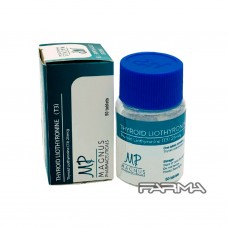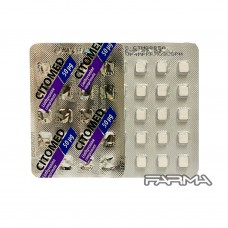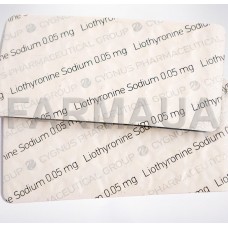Triiodothyronine (T3) is a thyroid hormone produced by the thyroid gland, playing a crucial role in regulating metabolism, growth, and development in the body. Understanding the functions, medical uses, and considerations of T3 is essential for individuals with thyroid disorders, as well as healthcare professionals involved in managing thyroid-related conditions.
Functions of Triiodothyronine (T3):
-
Metabolic Regulation: T3 plays a central role in regulating metabolism by influencing the rate at which cells utilize energy from nutrients. It increases basal metabolic rate (BMR), enhances energy production, and promotes the breakdown of fats, carbohydrates, and proteins for energy.
-
Development and Growth: T3 is essential for normal growth and development, particularly during fetal development and childhood. It promotes proper development of the brain, skeletal system, and other tissues, influencing factors such as bone growth, neural maturation, and organ development.
-
Cardiovascular Function: T3 affects cardiovascular function by regulating heart rate, cardiac contractility, and vascular tone. It helps maintain normal heart rhythm, cardiac output, and blood pressure, contributing to overall cardiovascular health.
-
Regulation of Body Temperature: T3 plays a role in thermoregulation by influencing heat production and heat dissipation mechanisms in the body. It helps maintain body temperature within a narrow range, ensuring optimal physiological function.
Medical Uses of Triiodothyronine (T3):
-
Hypothyroidism Treatment: T3 is used therapeutically in the treatment of hypothyroidism, a condition characterized by insufficient production of thyroid hormones by the thyroid gland. In cases where conventional thyroid hormone replacement therapy with levothyroxine (T4) is ineffective or poorly tolerated, T3 may be prescribed alone or in combination with T4 to alleviate symptoms of hypothyroidism.
-
Thyroid Hormone Replacement Therapy: T3 may be used as part of thyroid hormone replacement therapy in individuals who have undergone thyroidectomy (surgical removal of the thyroid gland) or radioactive iodine therapy for thyroid cancer or hyperthyroidism. Thyroid hormone replacement therapy aims to restore normal thyroid hormone levels and alleviate symptoms of thyroid dysfunction.
-
Diagnostic Testing: T3 levels may be measured in blood tests to assess thyroid function and diagnose thyroid disorders such as hyperthyroidism, hypothyroidism, and thyroiditis. T3 levels, along with other thyroid function tests, help healthcare providers evaluate thyroid gland activity and guide treatment decisions.
Considerations for Triiodothyronine (T3) Use:
-
Dosage and Administration: The dosage of T3 varies depending on the individual's age, weight, thyroid function, and response to treatment. T3 is typically administered orally in tablet form, with dosing frequency and timing determined by the healthcare provider based on clinical assessment and monitoring of thyroid hormone levels.
-
Monitoring Thyroid Function: Regular monitoring of thyroid function, including T3 levels, is essential during T3 therapy to ensure optimal treatment outcomes and prevent complications such as thyroid hormone imbalances, cardiac arrhythmias, and bone loss. Healthcare providers may perform periodic blood tests to assess thyroid hormone levels and adjust treatment as needed.
-
Side Effects and Adverse Reactions: Common side effects of T3 therapy may include palpitations, tachycardia (rapid heart rate), tremors, sweating, insomnia, and weight loss. Adverse reactions such as cardiac arrhythmias, osteoporosis, and exacerbation of angina may occur with prolonged or excessive T3 use, particularly in susceptible individuals.
-
Contraindications and Precautions: T3 therapy is contraindicated in individuals with hypersensitivity to T3 or any of its components, untreated thyrotoxicosis (hyperthyroidism), and acute myocardial infarction (heart attack). Caution is warranted in individuals with cardiovascular disease, hypertension, diabetes, and adrenal insufficiency, as T3 therapy may exacerbate these conditions.
Conclusion: Triiodothyronine (T3) is a vital thyroid hormone with diverse physiological functions, including metabolic regulation, growth and development, cardiovascular function, and thermoregulation. In clinical practice, T3 is used for the treatment of hypothyroidism and as part of thyroid hormone replacement therapy. Understanding the functions, medical uses, and considerations of T3 is crucial for individuals with thyroid disorders and healthcare professionals involved in managing thyroid-related conditions. Proper dosage, monitoring, and adherence to treatment guidelines are essential for safe and effective T3 therapy. Individuals considering T3 therapy should consult with a healthcare provider for personalized evaluation and management based on their specific medical needs and circumstances.






